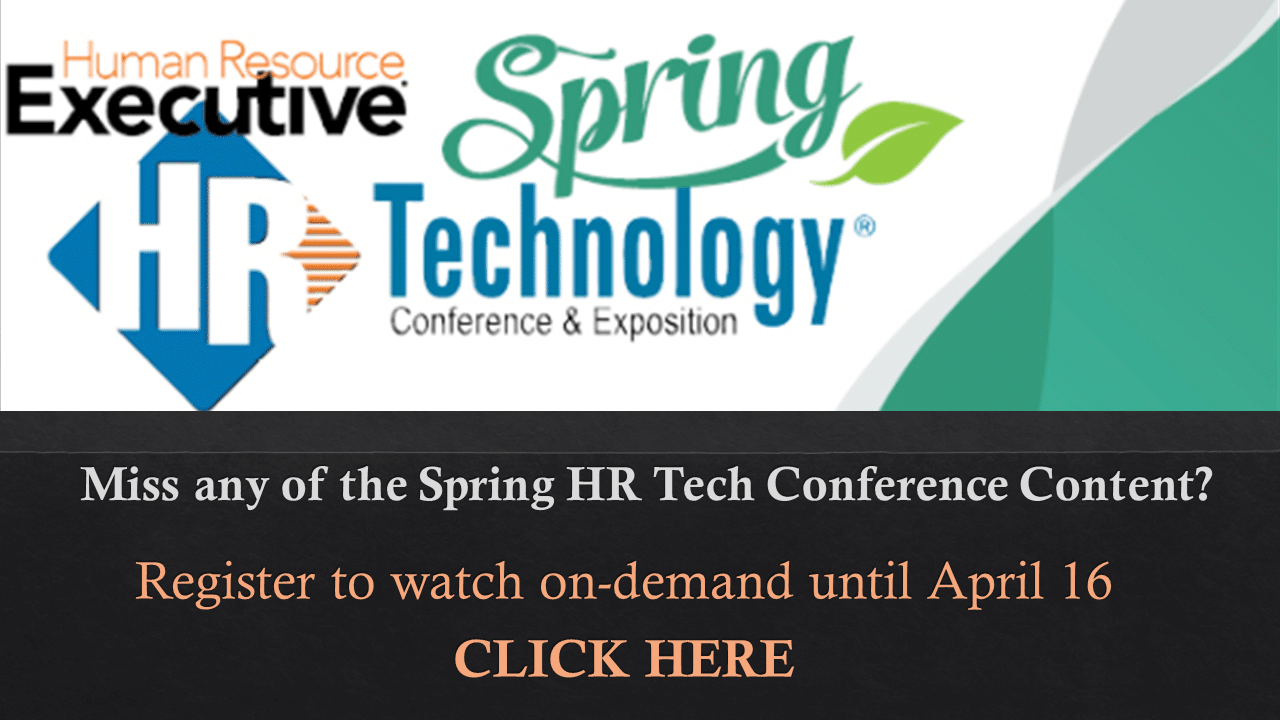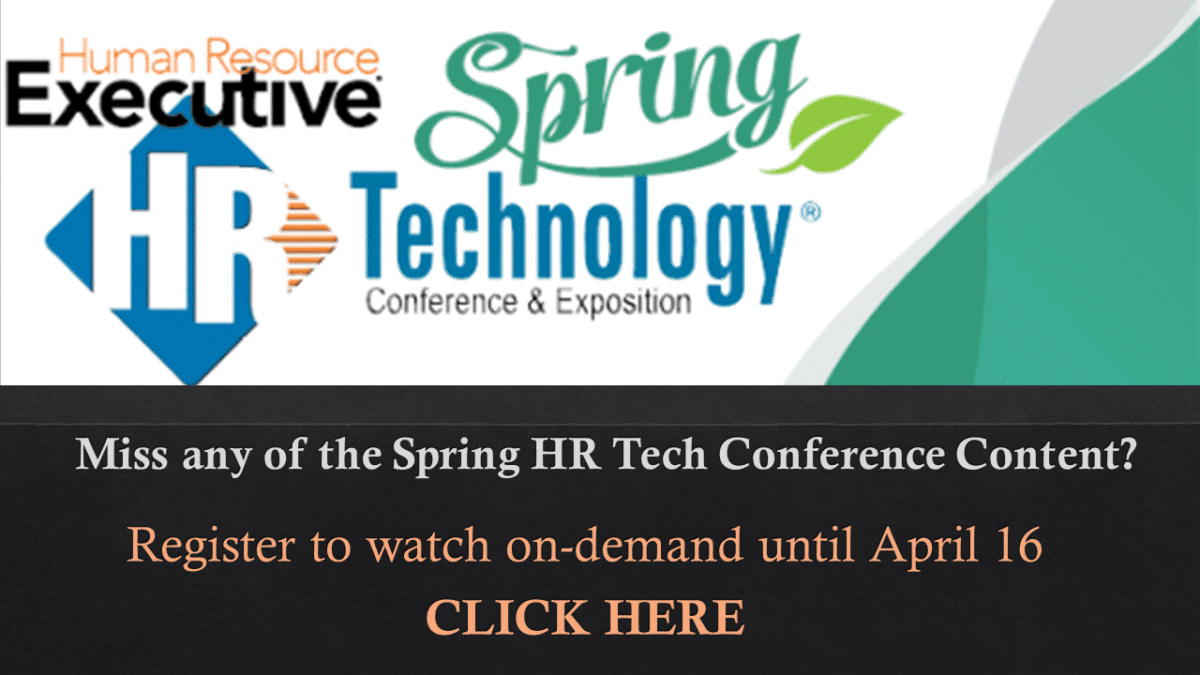 COVID-19 as an opportunity for growth and innovation? You bet. During the second day of Spring HR Tech—a free, virtual event running through Friday—experts and HR leaders discussed how they’ve been handling the pandemic, as well as lessons learned.
COVID-19 as an opportunity for growth and innovation? You bet. During the second day of Spring HR Tech—a free, virtual event running through Friday—experts and HR leaders discussed how they’ve been handling the pandemic, as well as lessons learned.
“This past year has tested me, it’s changed me, but all of these experiences collectively have really built me up, given me valuable lessons about how best to lead and really be more thoughtful about the kind of leader I want to be,” Jessica Lee, vice president of global performance and talent advisory for Marriott, said during Wednesday’s closing keynote.
Read all of HRE’s Spring HR Tech coverage here.
In addition to conversations about COVID-19, topics of the day included remote work, talent acquisition tech and more. Here are a few takeaways from the conference’s second day.
COVID-19 has made HR executives rethink leadership strategies and get more involved. There’s no question this last year has been extremely challenging for company leaders tasked with keeping employees healthy while also keeping operations afloat. But the pandemic has also given leaders a chance to learn.
Marriott’s Lee, for instance, self-admittedly wasn’t always experiencing the same pain points the company’s workers were, and she wasn’t deep in the trenches of their tasks. But when Marriott’s hotels put in place an abundance of health and safety measures, including mask mandates, it opened up a whole new set of challenges for workers. It made things difficult for employees who were used to engaging with guests by smiling, or who had to approach customers to tell them they had to wear their mask. Lee talked with employees about this challenge, as did company leaders, who had many Zoom meetings to talk about how they could still engage with customers while wearing masks—and how to approach customers who didn’t want to wear a mask, a much trickier situation. Lee said that experience reminded her to “stay close to the action in order to motivate and support those who are doing it themselves or make better decisions.” (Read more here.)
Employers are looking at new ways to recruit workers. There has been an obvious problem in talent acquisition, said Madeline Laurano, an analyst at Aptitude Research: Traditional job advertising—like display ads in newspapers, general job boards like Indeed or Glassdoor, niche job boards, online communities like Reddit or social media—is expensive and ineffective. As a result, a significant amount of employers are turning to programmatic job advertising, which essentially is the use of technology instead of people for buying, placing and optimizing job ads.
New data out from Aptitude Research, which surveyed 426 TA and HR directors, finds that 90% of companies that use programmatic are either continuing to invest the same or increasing their investment this year. The majority (57%) of companies are increasing programmatic investment this year. “Companies are turning to programmatic in a big way this year to be able to streamline all of their advertising to reduce spend and think about a performance-driven platform to be able to do all of the advertising,” Laurano said. (Read more here.)
COVID-19 is an opportunity for more innovation. While the pandemic has tested and challenged organizations in unimaginable ways, it’s also an opportunity to change old ways of thinking, said Mimi Brooks, CEO of Logical Design Solutions. “As with previous crises, we now see the opportunity for businesses to demonstrate resilience by transforming and even thriving through revitalization and innovation. Those businesses that are adaptable and collaborative will be most capable of dealing with the challenges that face us all in a post-pandemic era.”
Among the many ways the pandemic will change workplace strategies is more organizations embracing a hybrid-virtual workplace—and ways to engage workers in a remote setting. “Hybrid virtual workplaces are here to stay, and leadership must address challenges, such as maintaining the human connection, a diminished office culture, potentially lower levels of focus, a heightened need for time-management skills and leadership challenges of managing these remote workers,” she said. As a result, expect to see employers, led by HR leaders, scheduling regular virtual events, regularly communicating with employees and allowing workers to have a voice in hybrid virtual policies. (Read more here.)
